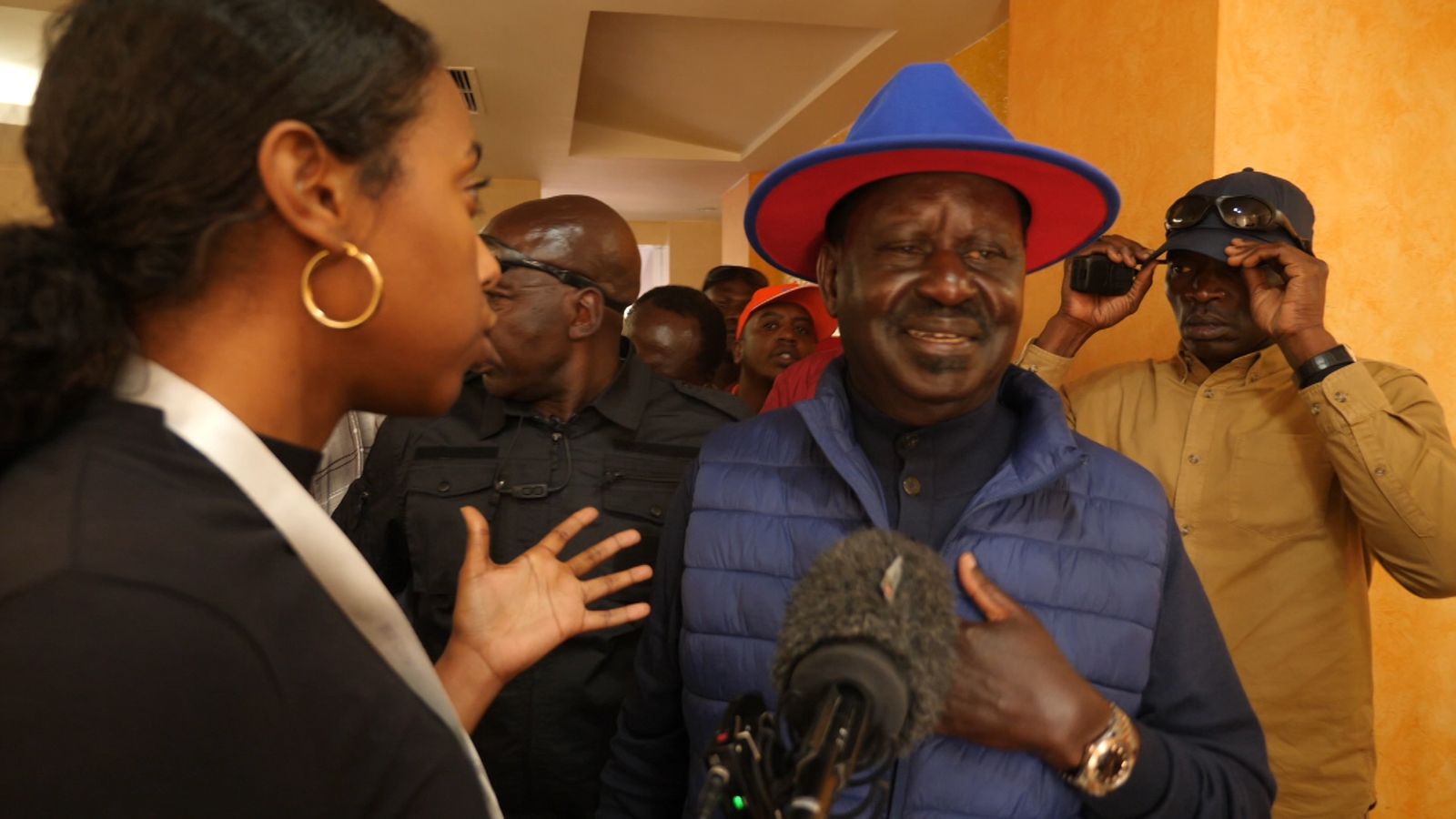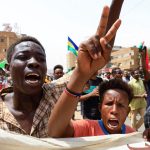The two front-runners in the race for Kenya’s presidential seat held their final campaign rallies ahead of next week’s vote.
At the Nyayo National stadium in Nairobi, yellow flags stretch across the stands as supporters chant the name of deputy President William Ruto.
In the polls, he’s a mere six points behind his rival and former Prime Minister Raila Odinga – both men say they are confident of victory.
Mr Ruto’s campaign has focused on one clear theme: supporting the “hustler nation,” with him positioned as the hustler-in-chief.
It’s an appealing slogan for young people here, who are facing staggering unemployment rates and make up nearly 40% of registered votes.
In these tough times, young Kenyans are finding creative ways to make ends meet.
At the stadium, we met a group of Nairobians who seemed deeply invested in a Ruto win. Clad in bright yellow, hoisting posters of him above their heads and singing along to campaign songs.
Kenya hopes for election free of violence as contest enters final stages
Meet the Kenyan presidential candidate campaigning on marijuana and hyena testicles
At least 30 people dead after bus plunges from ‘notorious’ bridge in Kenya
We spoke to them outside in the car park.
“We’re hustlers,” Sylvester said, when asked who they were.
By “hustlers” they don’t mean the generic label dished out by the Ruto campaign, but real life hustlers working the political landscape itself.
“We get paid” he says. “Rates are from 500 shillings – around $5 – $10.”
The election comes against a backdrop of a deepening cost of living crisis as rising fuel and food prices trouble millions across the country.
Sylvester explains that accepting this money from neighbourhood recruiters he calls “political brokers” has become a necessity during this time of economic suffocation.
After an hour of showing their “support” for the deputy president, they leave the stadium and travel 30 minutes across town to attend their next paid campaign rally.
They stop on the roadside to safely change into the blue and white shades of Mr Ruto’s main rival, Raila Odinga, out of sight from supporters from either side.
When you encounter an opposing side, you have to be very cautious” says Sylvester.
Many Kenyans are concerned about public safety during this time of tension.
In 2007, more than half a million people were displaced and at least a thousand killed after widespread violence over a contested election. That was Mr Odinga’s second bid for the presidency, and this will be his fifth.
We met him off the back of his final campaign rally and asked whether he will accept the outcome if he loses.
“We will accept and congratulate the winner if he wins fairly and also expect him to do the same thing,” said Mr Odinga.
Despite these assurances, there’s no certainty that fairness and calm will prevail next week.
On the eve of the final rallies, Mr Ruto shared his confidence in a clear win.
“By all indications we have won this election,” he said, ignoring the polls.






















